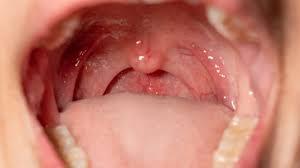Newsletter
Thank you for subscribing.
You have already subscribed.
Posted by - Pacific Pacificviewent -
on - Jul 9 -
Filed in - Health -
47 Views - 0 Comments - 0 Likes - 0 Reviews

The temporomandibular joint (TMJ) plays a crucial role as the hinge that connects your jaw to the temporal bones of your skull, located on each side of your head in front of your ears. This joint allows you to perform basic functions like talking, chewing, and yawning. When this joint doesn’t work properly, it can cause pain, discomfort, and difficulty with everyday tasks. This condition is known as TMJ disorder or temporomandibular dysfunction.
TMJ disorders can cause a variety of symptoms that, while not always serious, can significantly affect your daily life and comfort.
In this guide, we’ll explore what causes TMJ disorders, what symptoms to look for, and the treatment options available to help you find relief.
TMJ disorders can develop from several different factors, and in many cases, the exact cause may be difficult to determine. Understanding the potential causes can help you identify risk factors and take steps to prevent or manage the condition. The most common causes of TMJ disorders include:
A direct blow to the jaw, face, or head can damage the temporomandibular joint or the muscles that control jaw movement. This type of injury can occur from accidents, sports injuries, or physical altercations
Many people grind or clench their teeth, especially during sleep, often without realizing it. This puts excessive pressure on the TMJ and can lead to joint damage, muscle tension, and pain over time.
Various forms of arthritis, including osteoarthritis and rheumatoid arthritis, can affect the temporomandibular joint just like any other joint in the body. This can cause inflammation, pain, and reduced mobility.
The TMJ contains a small disc that acts as a cushion between the jaw bone and skull. If this disc becomes displaced or damaged, it can cause clicking, popping, or locking of the jaw.
High levels of stress can cause people to unconsciously clench their jaw muscles or grind their teeth, leading to muscle fatigue and joint strain. Chronic stress can also contribute to overall muscle tension in the face and neck.
Poor posture, especially forward head posture from prolonged computer use or looking down at devices, can affect the alignment of the jaw and contribute to TMJ problems.
Some people may be born with structural abnormalities or have a genetic predisposition to developing TMJ disorders.
TMJ disorders can present with a wide range of symptoms that may vary in severity and frequency. Recognizing these symptoms early can help you seek appropriate treatment before the condition worsens.Common signs and symptoms include
Pain in the jaw joint area, which may be constant or occur only when moving the jaw. The pain may be sharp, dull, or aching and can radiate to the face, neck, or shoulders.
Discomfort or pain when chewing food, especially harder or chewier items. You may also notice that your bite feels different or that your teeth don’t fit together properly
Audible clicking, popping, or grating sounds when opening or closing the mouth. While these sounds aren’t always painful, they can indicate joint dysfunction.
Difficulty opening the mouth fully or jaw locking in either the open or closed position. This can make eating, speaking, or yawning challenging.
Aching or soreness in the face, particularly around the jaw area, temples, or cheeks. This pain may worsen with jaw movement or stress
Frequent headaches, particularly in the temple area, that may be related to muscle tension and jaw dysfunction.
Earaches, ear fullness, ringing in the ears (tinnitus), or hearing loss problems that aren’t related to actual ear conditions.
Tension and pain in the neck and shoulder muscles, which can be related to the interconnected nature of these muscle groups.
While some TMJ symptoms may be mild and temporary, it’s important to seek professional evaluation if you experience persistent or severe symptoms. You should consult with an ENT specialist or dental professional if you have:
Jaw pain that lasts for more than a few days or keeps returning, especially if it interferes with eating, speaking, or sleeping.
Difficulty opening or closing your mouth, or if your jaw locks in position.
Ongoing headaches, facial pain, or ear symptoms that may be related to TMJ dysfunction.
Any symptoms that significantly affect your ability to eat, speak, work, or sleep comfortably.
Symptoms that are getting progressively worse or not responding to home care measures
Treatment for TMJ disorders typically starts with conservative approaches and may progress to more advanced interventions if needed. The goal is to reduce pain, improve jaw function, and prevent further joint damage.
Rest and soft diet modifications can help reduce stress on the jaw joint. Applying ice or heat to the affected area may provide pain relief and reduce inflammation. Stress management techniques, including relaxation exercises and counseling, can help address underlying tension.
Over-the-counter pain relievers and anti-inflammatory medications can help manage pain and reduce inflammation. Muscle relaxants may be prescribed for severe muscle tension, and in some cases, low-dose antidepressants may be used for chronic pain management.
Specialized exercises can help strengthen jaw muscles, improve range of motion, and reduce pain. Physical therapists may also use techniques like ultrasound therapy or manual therapy to address muscle tension.
Custom-fitted night guards or splints can help protect the teeth from grinding and reduce pressure on the TMJ during sleep. These devices can also help reposition the jaw to a more comfortable position.
For severe cases that don’t respond to conservative treatment, options may include corticosteroid injections into the joint, Botox injections to reduce muscle tension, or in rare cases, surgical interventions to repair or replace the joint.
While not all TMJ disorders can be prevented, there are steps you can take to reduce your risk and manage symptoms:
Practice stress-reduction techniques such as meditation, deep breathing exercises, or regular physical activity to help reduce muscle tension
Limit foods that require excessive chewing, such as hard candies, ice, or tough meats, especially during flare-ups
Maintain proper posture, especially when working at a computer or using mobile devices, to reduce strain on the neck and jaw muscles.
Wear appropriate protective gear during sports and avoid habits like nail biting, pen chewing, or using your teeth to open packages.
Maintain good oral health and address dental problems promptly, as issues like misaligned teeth can contribute to TMJ problems.
If you’re experiencing symptoms of TMJ disorder, don’t let pain and discomfort affect your quality of life. At Pacific View ENT, Dr. Armin Alavi and our skilled team have extensive experience in diagnosing and treating TMJ disorders. We offer comprehensive evaluations and personalized treatment plans to help you find relief and restore normal jaw function.
For an appointment, please visit our Contact Us page or call us at (805) 335-1690. Let us help you get back to comfortable eating, speaking, and living.
How We Can Recognize and Treat Temporomandibu... 0 0 0 8 3
3 photos


Our Mission... “To assist disaster survivors by providing a source for them to come together in time of need, to aid in the listing of events, information and other forms of assistance, and continuing support through the recovery process.”

Share this page with your family and friends.